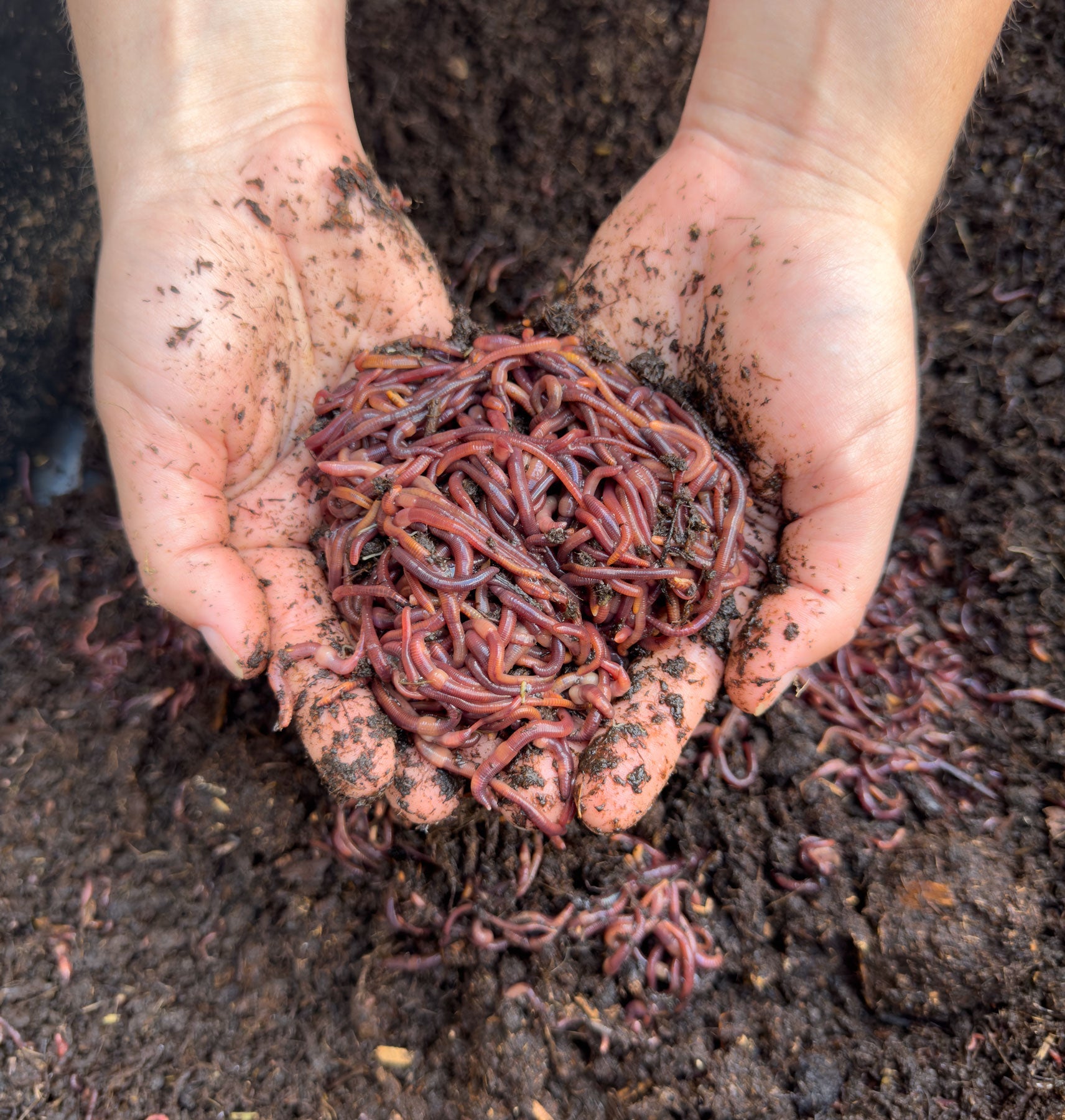The Unbelievable Globe of Red Wigglers: Increase Your Soil Fertility Today
The role of red wigglers, or Eisenia fetida, in enhancing soil fertility is a subject of growing interest amongst gardeners and farming experts. These little yet reliable organisms change organic waste into useful worm castings, dramatically improving dirt health and promoting lasting techniques. As we discover the benefits of vermicomposting and the functional steps to produce an effective worm container, the possible influence of these worms on your horticulture success ends up being significantly noticeable. Understanding the nuances of their treatment and application might simply transform the way you approach dirt management. What insights can be gotten from integrating these amazing animals right into your horticulture routine?
Recognizing Red Wigglers
Red wigglers, scientifically called Eisenia fetida, are a species of earthworm that play a crucial role in boosting dirt fertility. These worms flourish in organic-rich atmospheres, such as garden compost piles and rotting plant product, where they eat organic waste and secrete nutrient-dense spreadings. Their special anatomy, including a fractional body and a clitellum, enables them to duplicate swiftly and successfully process large quantities of raw material.

The environmental relevance of red wigglers extends beyond simple waste handling; they add to the dirt food internet, promoting a varied area of microbes that better boost dirt health and wellness. Understanding the biology and behavior of red wigglers is essential for utilizing their full potential in sustainable agriculture and gardening practices.
Advantages of Vermicomposting
The existence of worm spreadings enhances soil texture, allowing for better water retention and drainage. Red wigglers aid damage down natural matter, speeding up disintegration and reusing nutrients back into the dirt.
Vermicomposting also fosters microbial task, which is essential for a healthy soil ecological community. Beneficial microbes grow in the existence of worm spreadings, helping in the break down of organic products and enhancing vitamins and mineral accessibility to plants.
Last but not least, vermicomposting offers as an effective waste monitoring service, minimizing land fill waste by reusing kitchen area scraps and other organic products. This not just contributes to environmental sustainability yet also advertises a circular economy within horticulture and farming.
Exactly How to Set Up a Worm Container
Setting up a worm bin is a straightforward process that can dramatically enhance your composting efforts. Begin by picking an ideal container, which can vary from a readily available worm bin to a straightforward plastic or wooden box (Red Wiggler Express). weblink Ensure the container has sufficient air flow; tiny openings in the lid and sides will help with air blood circulation
Following, produce a bed linens layer to provide a comfy environment for the red wigglers. This can be made from shredded paper, cardboard, or coconut coir, dampened to a moist, sponge-like uniformity. Fill the bin to around one-third complete with this bed linens material.
Once the bed linen is prepared, it's time to introduce the worms. Red wigglers flourish in natural waste, so place them carefully onto the bed linens. Cover the worms with a light layer of additional bed linen to help them accustom.
Feeding Your Red Wigglers
Giving the best food for your red wigglers is essential for their health and the performance of your composting system. Red wigglers prosper on a different diet regimen, primarily containing natural materials such as vegetables and fruit scraps, coffee premises, and shredded paper. These products not only provide necessary nutrients yet additionally add to the microbial activity in the worm bin, which is critical for the worms' food digestion.
It is vital to prevent certain foods, such as dairy products, oils, and meats, as these can draw in pests and create undesirable odors. Furthermore, citrus peels and extremely spicy foods ought to be restricted because of their possible to hurt the worms. A well balanced approach to feeding includes keeping an eye on the amount of food presented to the bin, ensuring that it is taken in within a reasonable amount of time to prevent excess waste buildup.
To promote ideal digestion, it is beneficial to chop or shred bigger food things before including them to the bin. This method enhances the area for microbial activity, helping with quicker disintegration and improving the general efficiency of your composting system. Routinely observing the worms' feeding routines will help you change their diet regimen as necessary.
Using Worm Spreadings in Your Garden

To optimize the advantages, purpose to apply roughly one component worm spreadings to three components soil in your planting beds. Routine applications can cause boosted crop returns and healthier plants, making worm spreadings an invaluable source for both newbie and experienced garden enthusiasts alike. By utilizing this natural amendment, you can cultivate a successful garden while adding to sustainable horticulture practices.
Conclusion
In conclusion, red wigglers exemplify the crucial duty of vermicomposting in boosting dirt fertility. Their capacity to transform organic waste into nutrient-rich castings substantially improves soil framework and sustains microbial diversity.
Comments on “Take Care of Your Lawn with the Best Products from Lake Hickory Bait”